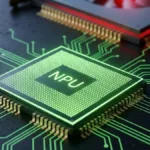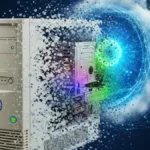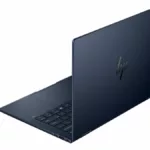As we prepare for CES one thing appears clear and that is that the two companies that increasingly appear to be locked in battle for our pocketbooks are Google and Apple. Apple is rumored to be trying to once again steal CES with first strike early announcement of their iSlate while Google is running to market with both what may be the most stunning Smartphone to ever hit the market in the Nexus One and a raft of partners who will be showcasing both Smart-Tablets like the iSlate (though sharply smaller) and Smartbooks. All of these things run ARM processors in what appears to be an ARM tsunami.
Microsoft is in danger of looking like they were caught napping and Intel will be pushing back with their Atom platform but where once these two companies were seen as invulnerable the beginning of 2010 suggests not so much this time.
Let’s talk about this fight and how it could play out.
Apple vs. Google
In many ways this mirrors the initial battle between Microsoft and Apple with some distinct differences. Steve Jobs is vastly more experienced than he was back in the 80s, he enters as CEO of the decade after all, and he is the CEO of Apple and unlikely to be fired. Google is just as scrappy as Microsoft was in the 80s though they don’t have an IBM backing them up and their Android platform isn’t anywhere near as powerful as DOS was in the 80s.

In short Apple is in vastly better shape and Google lacks many of the advantages that Microsoft had. However, Google does have a similar number of OEM partners while Apple is just one vendor, Google is a power in both information and web services which reflect the new environment, and they are actually more powerful individually than Microsoft was in the 80s and so may not need IBM.
In other words Google does have the breadth to slam dunk Apple, but Apple has the strength to give as good as they get and it may come down to 4G and, in the United States, AT&T.
4G: The Wireless Holy Grail and Apple’s Revenge
Granted 4G is being oversold because while it will increase bandwidth dramatically and potentially reduce monthly fees it still looks to be only able to get to about 20% of the bandwidth the FCC thinks we are going to need next decade. Still it will be vastly better than 3G and with devices like the iSlate and Nexus One, this lower cost higher speed data service will likely make a bigger difference than the devices will.
This may be where Google has the sustaining advantage because they are not tied to a specific carrier in the US, in fact the Nexus One will come out both from T-Mobile and subsidized and unlocked if the leaks can be believed. This means that unlike the iPhone and iSlate (which is also supposed to have Cell phone functions) you’ll get a choice of carriers and the possibility of buying a more expensive unlocked device but getting a discounted service. But initially these all appear to be 3G devices and with 4G starting to roll out aggressively this year, by mid-year, we could begin seeing the first 4G devices and that is when the new iPhone will likely roll to market.
So Google does look to be positioned to really pound on Apple’s market share during the first half but Apple could be one of the first with a real 4G iPhone in the second half and take their revenge on Google with a new iPhone or finally announce a real iPhone line much like they have a line of iPods which has been long overdue.
Don’t Forget Windows Mobile 7
As we talk about the second half we shouldn’t forget that this is when Windows Mobile 7 is due to market and Microsoft has demonstrated with Windows 7 they have a lot of fight left in them. They hired and staffed a brand new team pulling from the best in Microsoft in what for them is rare combination of Microsoft Superstars to take this market back from Google and Apple.
They are pretty upset about being pounded as badly as they have been in the mobile market and recognize they are at risk of being trivialized in this new segment even worse than Nokia has been. Microsoft’s successes have often been preceded by events that really pissed them off, Bing, Internet Explorer, and Windows Server all reached their most powerful positions after the company was embarrassed and got pissed. We’ll see if they do it again in the second half.
Wrapping Up:
We are entering the age of smart devices and web services and ARM. The vendors to watch are not only the platform vendors like Apple, Google, Microsoft, RIM, and Nokia but this new class of processor vendors like Marvell, NVIDIA, Motorola, TI, and Qualcomm. This is a change that is not unlike the birth of the PC and the folks initially on top like Commodore was in the 80s might not even be around when the dust settles and new champions, like Dell did, may emerge from the battle. It is going to be an interesting decade.
Here is hoping you have a wonderful New Year and that this coming decade is vastly better than the current one and, given that likely isn’t that difficult, that you enjoy the trip.






